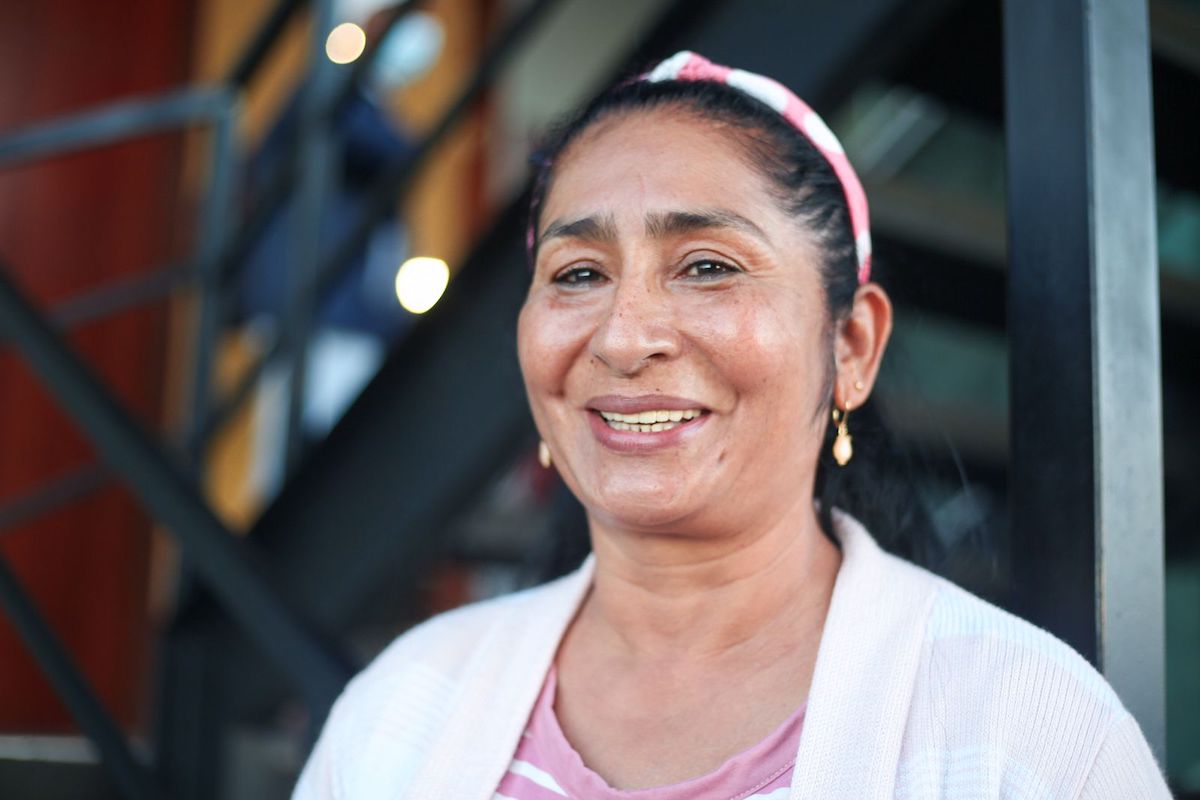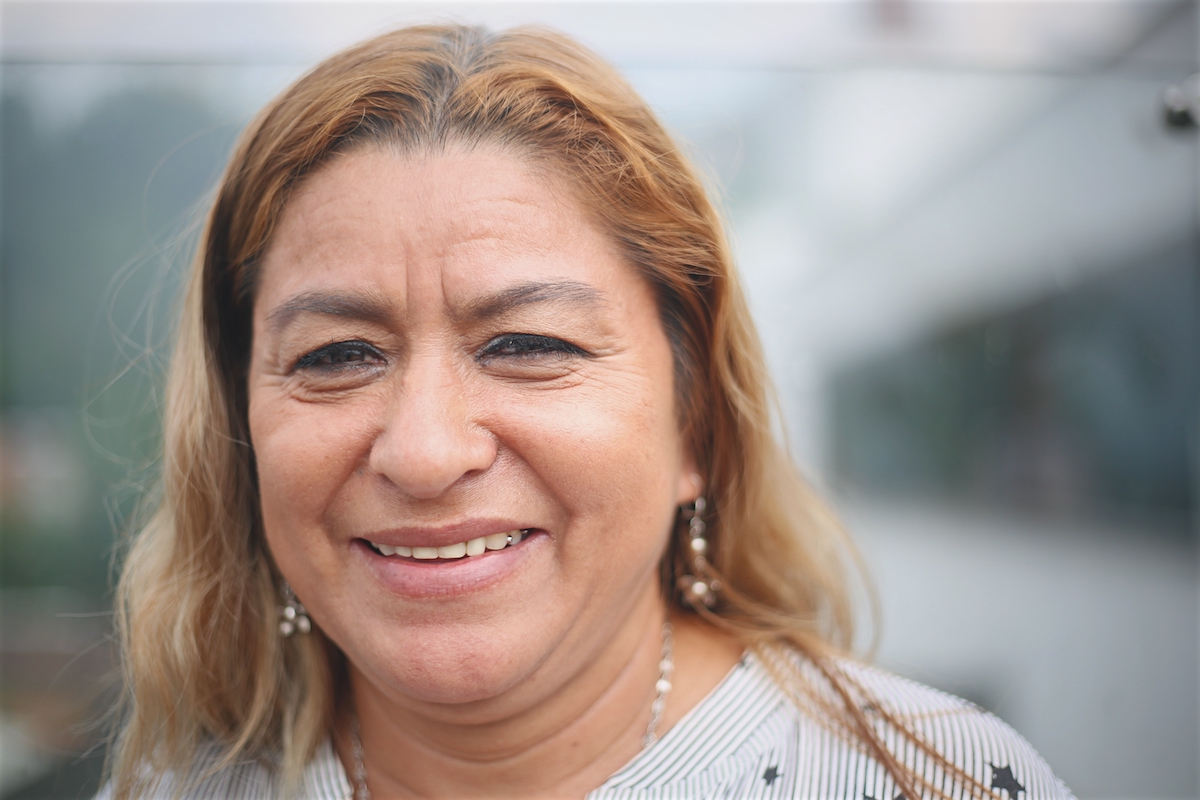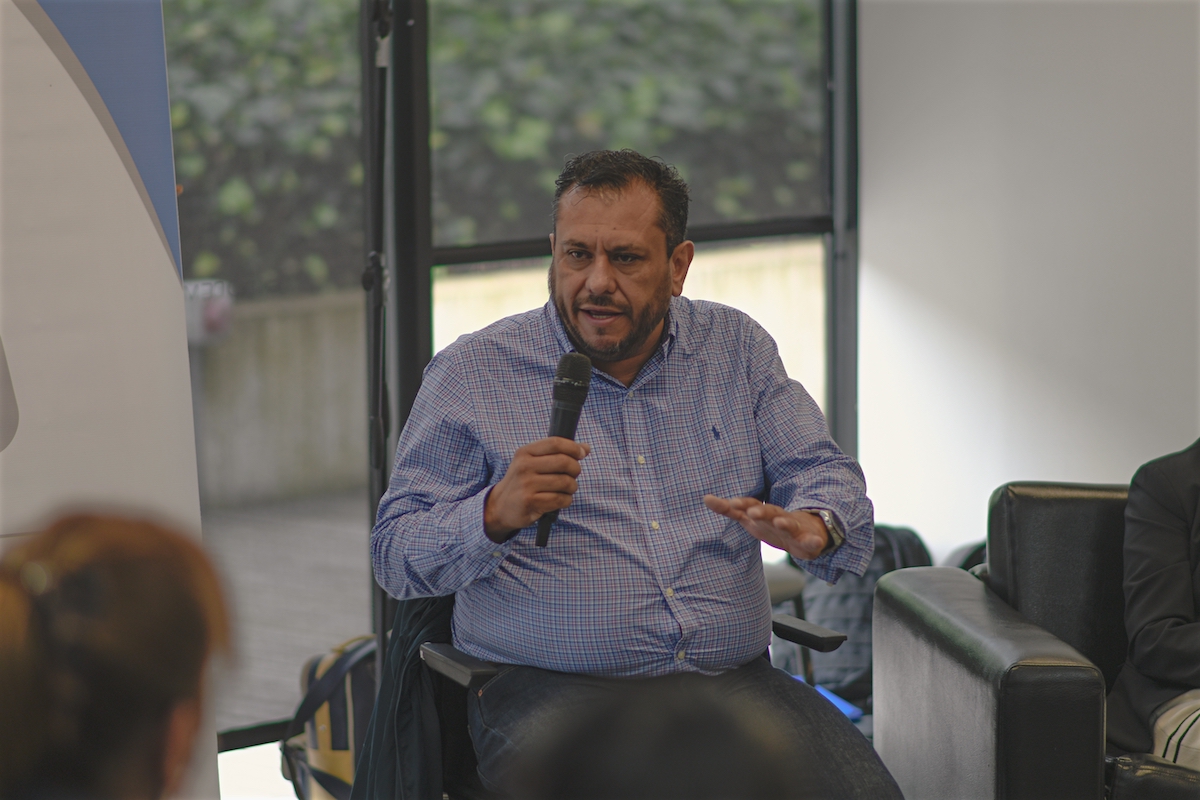

Yaritza (Photo by Daniela Díaz Rangel/Latino Rebels)
BOGOTÁ, Colombia — Yaritza, Mireya, Shirley, and Otilia travel the country searching for the bodies of those who were disappeared during the civil war.
During the more than five years since a peace deal was signed between the Revolutionary Armed Forces of Colombia (FARC) and the government, their investigative unit of over 100 ex-FARC fighters searches for answers for the families of those who went missing—some of whom have waited decades for closure.
It is estimated that the Colombian conflict left approximately 80,000 people missing, including civilians, soldiers and guerrillas, although the exact figure is unknown.
“It is a way to help reconstruct the truth, which is part of our commitment to peace-building,” said Shirley, who spends her days interviewing potential witnesses in conflict-torn regions of the country. “It is a way of rebuilding the social fabric. It is a way of helping families, those of us who have missing loved ones from the war. It is a way of closing a cycle of anguish and pain.”
Shirley joined the FARC in 1980, in the department of Caquetá, after her family was displaced from Tolima. She was a fighter in the insurgent organization for 34 years. In 2014 she went to Havana, Cuba as part of the FARC delegation that negotiated the peace deal with the government. Since the peace deal was ratified in 2017, she has worked for the investigative unit.
“Women here have to overcome incredible barriers,” she said, referencing the machismo culture common in parts of Colombia that endorses misogynistic and traditional views of the roles of women in society. “I think this makes us uniquely suited to this type of work. We have to be very dedicated and strong to overcome social obstacles, and this strength and determination make us well suited to be investigators.”
Investigators from Reencuentros, the name of the investigative unit made up mostly of ex-FARC fighters, look for answers —often in the very regions they once fought the government— through interviews with residents and ex-rebels, conducting tests on often unmarked gravesites and poring over local records for clues. Sometimes in their search for remains, the unit speaks with the very people responsible for the deaths of those who were disappeared.
Yaritza, investigative coordinator of the Eastern Bloc —a region that includes the departments of Meta, Guaviare and Arauca— is originally from Vichada, a department of the Amazon that was a flashpoint in the civil war. When she joined the rebels, she was barely 18 years old, and she signed up alongside six of her brothers after their family was displaced from their homes by the conflict. Yaritza is still trying to locate the remains of one of them who went missing during the conflict, a search that she says helps her understand all too well the feelings of those who come to her organization for help.
“I am convinced that this work is fundamental to peace in [Colombia] as we all seek to heal from the wounds of hatred, indifference, and violence,” Yaritza told Latino Rebels. “I think that more than just a lifelong project for me, it is a fundamental necessity right now for the country.”
Otilia, who coordinates the Northwest Search Bloc, fought for 33 years in Urabá, Antioquia, a region historically controlled by right-wing paramilitaries who fought on the side of the government during the war. She now coordinates investigations in that same territory.
“All this is a lesson for us,” she said. “Every day that passes we learn more things. It has been a very beautiful experience. I will continue to carry out this work as long as security conditions allow me to do so.”


Otilia (Photo by Daniela Díaz Rangel/Latino Rebels)
Investigators often work in the most dangerous and conflict-ridden regions of Colombia—the places where they are most needed are often the places where there is little to no state presence. After the peace accord, 90% of FARC fighters disarmed and rejoined civil society, but some formed “dissident” groups who continue the war as well as illegal activities such as extortion, coca farming, and illegal mining.
The vacuum left behind when FARC left the regions they controlled was quickly filled by a plethora of both left-wing and right-wing armed groups as well as narco groups more motivated by profits than politics. Some of these groups consider the FARC fighters who chose peace to be enemies. Others consider them to be traitors.
Yaritza explained that she and other investigators often work under extremely dangerous security conditions. She said they have received multiple threats on their lives. Although she has security escorts, they must often travel by public transport through areas where clashes between armed groups or with the army are common. She explained that she could easily become one of the more than 330 ex-FARC peace signatories who have been killed since the accord was signed.
Reencuentros operated informally as a private organization for the majority of its history, achieving legal status from the government only last month. They hope that official accreditation allows them to request better security resources from governments and international aid organizations as well as ensure their work can be carried on by future generations. They often work side by side with the International Red Cross (ICRC), which Reencuentros said has been instrumental in training peace signers in humanitarian work as well as re-incorporation into civil society since 2015.
As part of their newly granted official status, Reencuentros work file reports to the government: “Unit for the Search for Disappeared Persons,” an institution created after the peace agreement who have all technical capacities and investigative equipment.


Helmut Ángulo (Photo by Daniela Díaz Rangel/Latino Rebels)
Helmut Ángulo lost both of his parents in 2000 at the height of the civil war. They were kidnapped and later killed by the FARC. Helmut disapproved of the 2016 peace deal. He believed instead that the only solution was the complete eradication of the guerillas.
However, the newly implemented accord gave him the chance to search for the remains in the region where they went missing. He approached Reencuentros only reluctantly, after efforts with security forces and the Public Prosecutor’s Office led to dead ends.
“I was very direct and insulting when we met,” Helmut told Latino Rebels. “I viewed them as enemies, and what’s more badly organized and working with outdated equipment. I think I may have even threatened them.”
But after arguments and threats, “I realized they really wanted to help,” he said.
It took three years, but with the help of the search group, Helmut was able to recover the remains of his mother, Carmen Rosa Castañeda. He now works with Reencuentros searching for his father’s body.
“Hatred can be overcome,” he said. “The war is over. And we have no choice but to build peace. It will be a slow and multi-generational effort. But the only other option is more war.”
***
Daniela Díaz Rangel is a photojournalist based in Colombia whose work focuses on focus on gender, peace, and social issues.



[…] Source link #ExRebel #Women #Searching #Colombias #Disappeared […]